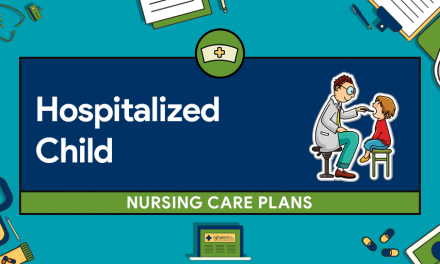A nurse’s comprehensive care planning guide is a useful resource when dealing with patients suffering from neurological disorders. It outlines how to plan a patient’s care and provides advanced care planning as well. Neurological care plans are an essential part of an individual’s plan and must be evaluated by a nurse. There are several types of neurological care plans and a nurse must assess each one to determine the needs of the patient. To choose a care plan for a patient, a nurse must evaluate the patient’s condition and decide the treatment that will be administered.
Nursing care planning book
A comprehensive nursing care planning book for people with neurological conditions is a must-have for any nurse. Using a clear format and clear language, it teaches you the essential elements of a good plan. The book contains 217 care plans, including three new and expanded ones. Its content is updated regularly to reflect changes in clinical practice, and the book’s design emphasizes interprofessional collaborative practice. The new edition includes a number of useful features, such as a new section on communication skills.
Each chapter includes a checklist for nurses to follow. A table of contents lists every nursing diagnosis. A collaborative care map creator connects the content with care planning. The design has been revamped with a more contemporary look, making it easier to navigate through the reference. Each chapter includes a checklist of critical questions to ask and answer, as well as an overview of the best treatments for a particular patient’s condition.
Comprehensive guide to planning care for patients with neurological disorders
A Comprehensive Guide to Planning Care for Patients with Neurological Disorders synthesizes expert clinical advice from neurologists and other specialists to provide a comprehensive, one-volume resource that equips readers with a firm understanding of basic concepts in neuroscience, allowing them to make timely decisions about common symptoms and conditions. The book covers specific categories of neurological disease, providing concise descriptions of symptoms, examination methods, and treatment options for each.
While neurological emergencies require close assessment, the community practitioner can usually identify and refer patients to specialist care. A thorough history and physical examination are crucial for identifying potentially life-threatening conditions. For example, a headache is often accompanied by a subarachnoid haemorrhage, which is potentially life-threatening. While these emergency cases require secondary care assessment, most neurological emergencies are easily treated in primary care, as the patient is likely to require further care.
Requires assessment by a nurse
As a nurse, you will often have to perform a variety of assessments. Some of these may seem routine, but others will be difficult to master. Regardless, nurses need to develop many different skills to conduct assessments. Visual observation is a key skill. In addition, nurses must have a strong sense of smell, which is essential for evaluating patients’ overall health. Other skills may be more difficult to develop, such as evaluating skin condition and temperature.
The nurse performs this assessment for several reasons. During the assessment, the nurse collects comprehensive data about a patient’s health, which enables the nurse to develop nursing diagnoses and care plans. An assessment helps the nurse spot underlying health conditions and potential health problems. It also helps her determine whether a certain treatment plan is working. In addition to the assessment, the nurse may notice a potential problem that the patient may not have noticed before.
Includes advance care planning
Involving patients and families in advance care planning is critical to the process of providing appropriate treatment. Advanced neurological conditions can be complex and difficult for both patient and family. Advance care planning facilitates open discussion about preferences and the acceptance of disease. This planning should take place before life-sustaining treatments are initiated, and should address circumstances that could lead to a patient’s withdrawal. There are many benefits to incorporating advance care planning into neurological care plans.
Advanced care planning includes the creation of a living will or other document specifying a person to act as a proxy for medical treatment. It gives the proxy authority and a detailed description of the patient’s preferences. The advance directive is readily available to clinicians and makes a person’s wishes known. It should be transparent and easily accessible. Specifying a surrogate decision maker is critical to the process.
Provides examples
The following paragraphs provide examples of nursing care plans for patients with neurological conditions. Each plan includes specific recommendations and strategies to maximize the ability of patients to communicate with their health care providers. Caregivers should address patients by name, speak slowly and use simple gestures to communicate with them. They should also maintain eye contact and listen carefully. Adapt environmental settings to promote cognition. Consider sensory exposure, hearing ability, and distractions. Nurses should help patients establish and adhere to a schedule, incorporating familiar tasks and routines into the daily schedule. They should also optimize nutrition, encourage fluid intake, and help with meal preparation. Care plans should also include strategies for combined exercise and cognitive activity.
Is based on UK benchmarking data
The NHS is implementing neurological care plans based on benchmarking data, but the results have varied considerably from region to region. The benchmarking data provides an idea of the level of demand for care and the capacity of different services, and supports providers in providing optimal care within the constraints of resources. It also helps commissioners achieve the best balance possible from available resources. It is an important development for a number of reasons.
The LTC programme was launched before the general election and before major reorganisations of PCTs. The aim was to develop lead professionals for neurology, but the focus on neurological conditions was often lost in the process. Development plans often stalled as staff moved to different roles, and PCTs focused on balancing the books and straightening the finances. Ultimately, the payback for these initiatives will depend on the shared expertise of local clinicians and professionals in decision-making bodies.





